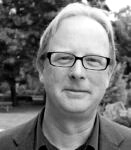Michael Reid Trice, Ph D.

Founding Director, Center for Ecumenical and Interreligious Engagement and Spehar-Halligan Professor
Director and Professorship | A Brief Annotation by a Public Constructive Theologian
In July 2019 I was appointed to the directorship and professorship at the STM Center for Religious Wisdom & World Affairs. In July 2021 the Provost appointed me to the directorship and professorship at the Seattle University Center for Ecumenical and Interreligious Engagement as its founding director.
I am a Faculty-Administrator who is a professionally trained theologian with demonstrated experience in leading outcome-based teams at the axis of public theology in society. I am a Constructive Theologian rooted in both interdisciplinarian and integrationist methodologies with an interest in responding to the theological challenges of our world today. I currently serve on national and international boards in the field, including as Secretary of the Parliament of the World’s Religions, by recent invitation on the United Nations Environmental Programme Religion-Science Consortium, and within the Vatican Covid-19 Commission Ecology Working Group, which is part of the Dicastery for Promoting Integral Human Development in the Holy See. With 30 years in the field of public theology across educational platforms, I served as the Associate Executive for the Evangelical Lutheran Church in America in the office of Ecumenical and Inter-religious Relations from 2004-2011. In this capacity I likewise represented Bishop Mark Hanson on President Obama’s Advisory Council on Faith-Based and Neighborhood Partnerships.
My organizational strengths reveal an entrepreneurial aptitude, with a professional and vocational commitment to egalitarian strengths-based leadership, and discernment. I lead a robust interreligious and international Center Advisory Council in the Pacific Northwest at the Center. I publish regularly in my field of Constructive Theology with an emphasis upon theological responses to engaged pluralism today.
My leadership of the Center is aligned to Seattle University Strategic Vision (2020-2025); the Society of Jesus General Congregation 34 (with its emphasis upon ecumenism, religious literacy, technology and education); our key external donors and funders; and a deep personal commitment to the formation of the whole person. At the Center, students, staff and faculty are onboarded and invited to participate in a narrative of shared success, with a collective focus on achieving stated outcomes that enhance public theological awareness in the world today.
In the summer of 2018, my sabbatical project post-tenure took place in the culmination of a deep recognition of a) society’s changing relationship with theological education and organized religion; and b) a yearning in our time to accelerate learning for virtual capacity-building in which students provide leadership in testing the theological hypotheses at the heart of public theology today. The Theolab would embrace numerous disciplines in the deeper search for meaning, as an outpouring of my commitment as a public theologian.
Religica began in October 2018, and today emphasizes podcasts and blogcasts with influencers at the axis of religion and society from around the world. Religica has created hundreds of resources and acquired a listening audience each week that would fill to capacity a medium-sized gathering hall at the university each Friday afternoon. Today this theological laboratory (theolab) is integrated into the work of the Center. Whereas the Center hosts scholarly projects and creates multivalent resources for classroom and community, the Theolab tests the beakers of hypotheses and methodologies creates content in nimble established processes, and is a gathering place for religious traditions, spiritual pathways and indigenous wisdom.
In the coming years, within a large community of students, interns, and volunteers, the Center will be developing as a platform for public theology within ecumenical and interreligious engagement that is coherent, comprehensive and integrated to the mission of Seattle University.
What follows below reflects a single vocational and professional aptitude, as a tenured faculty at Seattle University. My teaching, research, scholarship and service are all features of a united creative identity, the core of which is generated within the heart of a constructive theologian looking out in the university and the world.
Full Curriculum Vitae: Trice CV

.png)